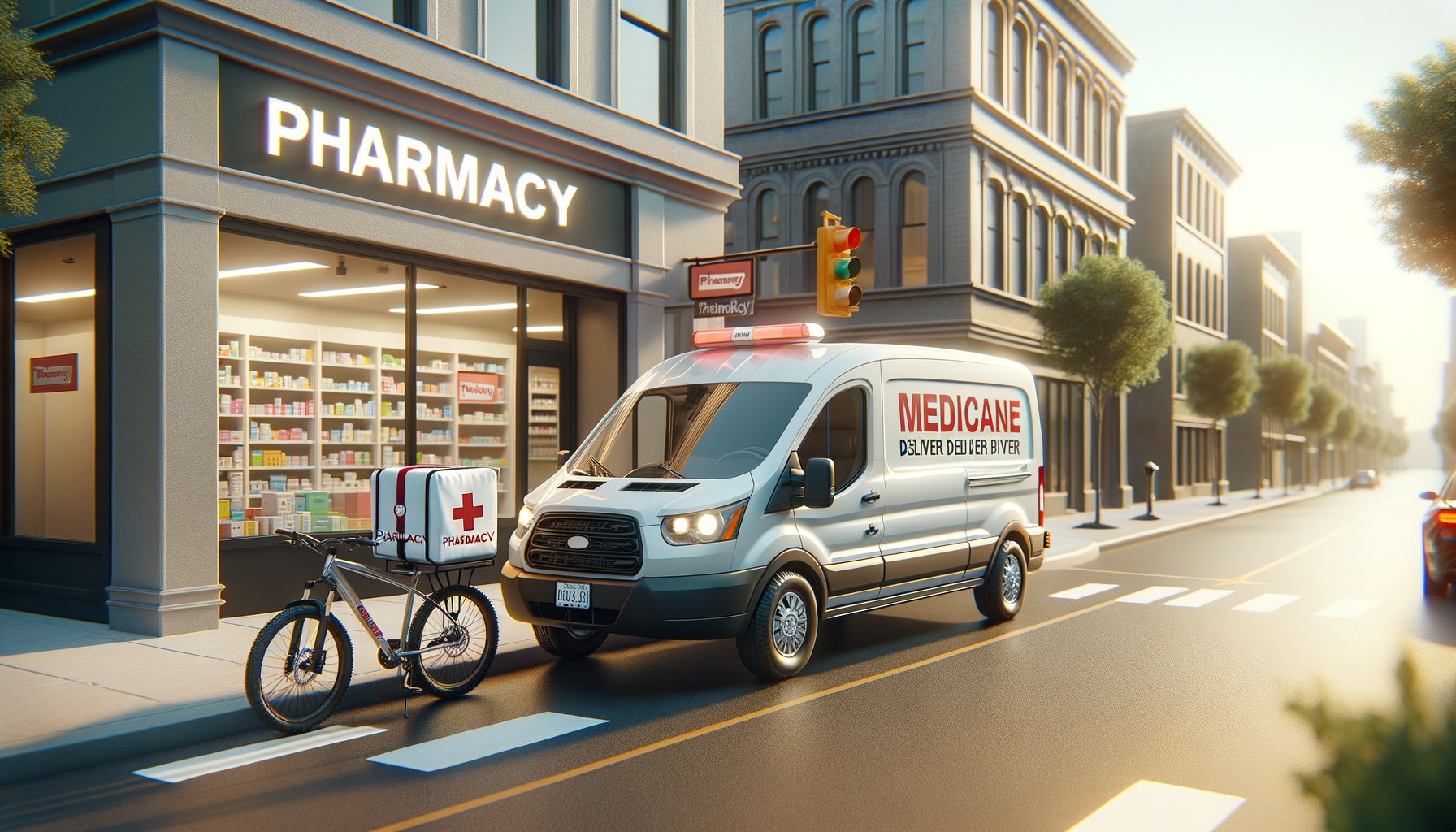Understanding the Role of a Medicine Delivery Driver
In the healthcare industry, the role of a medicine delivery driver is crucial. These professionals are responsible for the safe and timely delivery of medications to patients, pharmacies, and healthcare facilities. The job requires attention to detail, reliability, and a deep understanding of the importance of medication adherence for patient health outcomes. Medicine delivery drivers must be familiar with the local area and possess excellent time management skills to ensure that deliveries are made promptly. Moreover, they often act as the face of the pharmacy or healthcare facility, providing customer service and ensuring that patients receive their medications with care and professionalism.
Responsibilities of a medicine delivery driver typically include:
- Picking up medications from pharmacies or distribution centers.
- Verifying the accuracy of orders before delivery.
- Delivering medications to patients’ homes or healthcare facilities.
- Maintaining records of deliveries and managing receipts.
- Ensuring compliance with healthcare regulations and privacy laws.
This role is not only about transportation; it involves building trust with patients and healthcare providers. As a medicine delivery driver, one must be prepared to handle sensitive information and maintain confidentiality at all times.
Qualifications and Skills Required
To become a medicine delivery driver, certain qualifications and skills are essential. While specific requirements may vary by employer, there are common prerequisites across the industry. Firstly, a valid driver’s license and a clean driving record are mandatory. Employers often prefer candidates with experience in delivery services, though this is not always a strict requirement.
Beyond driving skills, a medicine delivery driver should possess:
- Strong organizational skills for managing multiple deliveries.
- Attention to detail to ensure accurate delivery of medications.
- Good communication skills for interacting with patients and healthcare staff.
- Basic knowledge of healthcare regulations regarding medication handling.
- Physical fitness, as the job may involve lifting and carrying packages.
Additionally, some employers may require a background check and drug screening to ensure the safety and reliability of their drivers. Continuous training and updates on healthcare regulations are also important to maintain the quality of service and compliance with laws.
Challenges and Rewards of the Job
Working as a medicine delivery driver comes with its own set of challenges and rewards. One of the primary challenges is the responsibility of handling medications that are critical to patients’ health. Drivers must ensure that these medications are delivered in a timely and secure manner, which can be stressful, especially in high-pressure situations or during inclement weather.
Another challenge is navigating traffic and managing time effectively to meet delivery schedules. Drivers must also be prepared to handle emergencies, such as vehicle breakdowns or incorrect delivery addresses, which require quick thinking and problem-solving skills.
Despite these challenges, the role is highly rewarding. Medicine delivery drivers play a pivotal role in the healthcare system by ensuring that patients have access to their medications, which can improve health outcomes and quality of life. The job also offers a sense of fulfillment and purpose, knowing that one’s work directly contributes to patient care and well-being.
The opportunity to build relationships with patients and healthcare providers adds a personal touch to the job, making it a unique and gratifying career choice.
Steps to Becoming a Medicine Delivery Driver
If you’re considering a career as a medicine delivery driver, there are several steps you can take to get started. Begin by researching companies or healthcare facilities in your area that offer delivery services. Many pharmacies and healthcare providers have dedicated delivery teams or partner with delivery services.
Once you identify potential employers, prepare your application by highlighting relevant experience and skills. Emphasize any previous work in delivery services, customer service, or healthcare. Obtaining a commercial driver’s license (CDL) can also enhance your qualifications and make you a more competitive candidate.
Networking with professionals in the industry can provide valuable insights and job leads. Consider joining professional associations or online forums related to healthcare delivery services to connect with others in the field.
Finally, be prepared for interviews by understanding the specific needs and expectations of each employer. Demonstrating a commitment to patient care and a willingness to learn can set you apart from other candidates.
The Future of Medicine Delivery Services
The future of medicine delivery services looks promising, with advancements in technology and changes in healthcare delivery models driving growth in this sector. As telemedicine and remote healthcare services become more prevalent, the demand for reliable medicine delivery drivers is expected to increase.
Technological innovations, such as GPS tracking and automated delivery systems, are enhancing the efficiency and accuracy of deliveries. Some companies are even exploring the use of drones for medication delivery, which could revolutionize the industry by reaching remote or hard-to-access areas quickly.
Additionally, the growing emphasis on patient-centered care and convenience is likely to boost the demand for home delivery services. Medicine delivery drivers will play a critical role in this evolving landscape, ensuring that patients receive their medications promptly and safely.
Overall, the field offers numerous opportunities for growth and innovation, making it an exciting career choice for those interested in contributing to healthcare delivery.




Leave a Reply